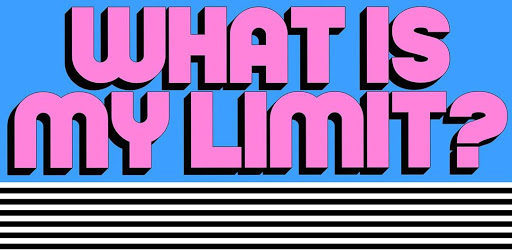Eléna Pougin
This morning, I woke up at 6 am. Like all other mornings, I had no reason to do so, if only to get ahead of my schedule, as usual. I know what you’ll say: by always waking up early and working to get things done, I should have nothing left to work on. But that’s exactly where the problem lies. Every time I end up finishing whatever I intended to do, I take one more step out of my comfort zone by adding more work to my plate.
And here, I even know what you’ll think: how is it possible that the amount of work that I have to do each time increases despite managing to continually cross items off my list? The truth is, for me, it does. And it probably does for you as well.
This is the daily thought process of a Sciences Po student, trained to feel guilty as soon as he or she doesn’t find something else to do. The midterms have ended, have I managed to get good grades? If so, I should enroll in a double diploma like any other student; otherwise, I will remain in my comfort zone and stop progressing. I did all my presentations for the semester? Great, then I should participate in a new association, I’ll have plenty of time so why not? This is the mindset.
When do we stop? Are we machines? Are we even truly learning when we memorize some famous author’s theories three hours before an exam and then vomit them madly on the paper? Is that our purpose?
That’s definitely not mine. We start over and over again, throwing ourselves into the unknown every time we feel comfortable. What is wrong with us? That doesn’t seem healthy, not healthy at all… At some point, there must be a comfort zone in which we choose to stay. Otherwise we’re submit ourselves to a frantic life, not even giving ourselves the time to benefit from the fruits of our very own labour.
Because the admissions procedure for Sciences Po is so competitive, we always fear that we’re less than someone else and believe that we must work twice as much to fulfill our dreams. Is it true? Is our ability to accomplish something dependent on the risks we take, more so than our own health? I don’t think so. No matter what, we continue to be afraid of staying too long in our comfort zones and we seize every opportunity to escape it. What else can we do? We have always been told that we had no other choice.
But we do, and I can assure you that acknowledging this has been very frightening for me. I second-guess myself each time I go through the doors of the library, seeing all those souls typing on their computers as if their lives depended on it, not even turning their heads at sudden noises. Sometimes, I even feel bad for being myself, someone for whom it would be impossible to be focused for such a long time. I simultaneously admire and despise this ability that I see around every corner of the place I frequent more than my own house.
But what worries me the most is our happiness, and to a broader extent, our humanity. The people in this library do not seem to be enjoying what they are doing. The only thing they seem to crave is escape – from this room which they know better than the contents of their kitchen cupboard. But they don’t, they never escape. They’ve been taught well.
I don’t think we should suffer to learn something or to achieve our goals – whatever our academic level. It shouldn’t be a hardship that we must prepare for, simply because nothing we’ll ever learn will make us more valuable than what is already inside each and every one of us.
Perpetually ignoring our comfort zone is causing us to forget what we’re worth, to lose our confidence and shield ourselves from the ocean of qualities within us that accounts for way more than anything extracted from a book. Not to mention that mental breakdowns are a real phenomenon. For instance, according to the National Institute of Mental Health of the United Kingdom, 19% of British people are facing anxiety disorders due to work or school performance. You should think about that the next time you consider dismissing your well-deserved rest.

But, and I know it as well as you do, people might be tempted to make you believe that you should work like a beast and get the best diploma that you possibly can. Society makes you feel this way. That’s life. And if you can run away from your comfort zone, you can’t run from social norms. Still, you can be conscious of them and the consequences they have on your behavior.
All the same, I am nineteen and am subjected to the same obligations as you are, so I know what I’m saying might seem naïve. I haven’t even graduated so what could I possibly understand about comfort zones? However, I do believe we should nurture in ourselves the things we like instead of the things we’re not good at. What could possibly be wrong in specializing in what we’re fond of? It seems essential to me to know our comfort zones and where our boundaries are – especially when it comes to young students like us. What is Sciences Po compared to our own safety?
That’s why I’m begging you, please let me go back to my comfort zone. It may seem easy but in fact, it is not. I tried, but my brain is now incapable of stopping, just for a while. When it comes to working a lot, too much, I can’t help myself.
“Life begins at the end of your comfort zone,” they said. Now, I’m paying the price for having remained too long in this unbearable situation: I’m an addict. I’m even more stressed when I have nothing to stress for. Thus, each hour of my timetable is planned and I’m exactly aware of the time I will need for every single task.
But all I know is that I don’t want to think this way any longer. I feel like I need to stay in that long-neglected comfort zone. I have pushed myself so hard since last year that I thought I would get ill at some point. I feared for myself. Crying every single day, feeling not being enough, waiting for every single email as if I needed new opportunities to be valuable or accepted.
At the same time, maybe paradoxically, I feared each new task I had been asked to do, worrying that I wouldn’t be able to make it or that I would end up dropping college. I didn’t. But here’s what I know: I will never go back to this state of overworking and overthinking everything. From now on, I refuse to be taught that I should go beyond my comfort zone to be fulfilled. I am convinced that I can work it out without putting myself in danger. If not, it signifies that what I was longing for was not made for me and I will accept it. I will no longer tolerate the same constant state of exhaustion as last year, regardless of whether or not this means Columbia or Berkeley will accept me. Those are my conditions, my terms, and my vow to start respecting my own self.
Of course, I’m terrified to drop some projects only to focus on what truly moves me. Of course, for the moment, I feel terrible in admitting that I am not capable of handling such a workload. But I am proud of putting myself first for once. After all, what is the point of being involved in this umpteenth association if I’m not even interested in it and if I’m wasting everyone else’s time by failing to meet their expectations? To be accepted by a university? No, thanks. It is definitely not worth it.
Being in your comfort zone doesn’t mean that you are not good enough nor does it mean that others are more capable than you are. It also doesn’t necessarily mean you have to censor yourself to smaller challenges. It only means you know yourself, that you know your boundaries and that you cherish them. At least, I do.
That’s why I encourage you to know yours as well. There is nothing worse than constantly shouldering the pressure of something you don’t appreciate. Anxiety is no way to achieve a “good” performance in any area of your academic or professional life, no matter what you’ve been raised to believe. You don’t have to believe me and you will probably disagree but still, I must repeat it: no matter what you think, let me stay in my comfort zone. Good for them if some need to excel to evolve, yet, I’m sure I don’t. Life is already stressful enough not to be constantly asked to leave my one and only shelter when things start being too much.
What I need is safety. To be able to remove myself from situations that endanger my wellbeing and to discover situations that won’t. Life is about knowing what you’re capable of, and one of the best ways to do so is to trust things that make you feel good and secure. This is one thing I have learned, and I’ve learned it the hard way. Set appropriate goals for yourself – not big ones.
Other posts that may interest you:
- The Trouble with ‘Ecocide’
- Carbon dioxide removal – hit or miss?
- Local Victories for Turkish Opposition — A Sign of Hope?
- Are France and Japan a Mismatch Made in Heaven?
- A Reflection on Dark Tourism
Discover more from The Sundial Press
Subscribe to get the latest posts sent to your email.





